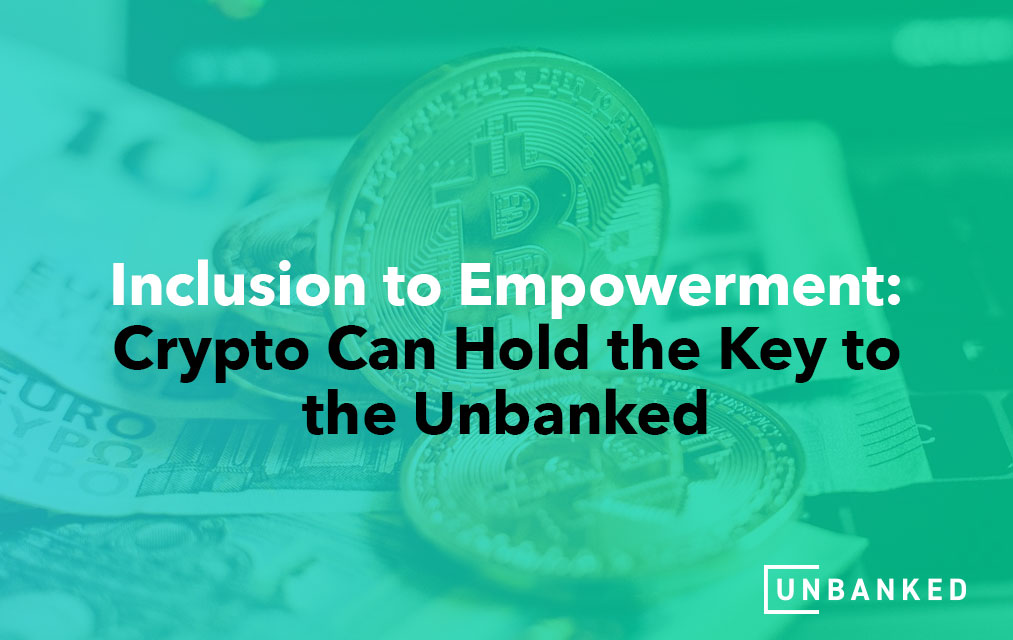Approximately 1.7 billion people lack the access they need to the financial services they need. This leaves them without being able to open a bank account. It also doesn’t allow them to manage their money effectively. They’re unable to borrow, save, or even invest their money which can ultimately bring them the financial empowerment they need. Financial exclusion leads to the unbanked population in many developing countries and is also seen in developed countries.
Traditional banking systems leave many individuals trapped in a continual circle of financial disparity. However, despite this exclusion from the traditional global finance market, two-third of the unbanked have access to a mobile phone. This modern technology can give them the empowerment and inclusion they need to access the financial services they need. With the growing digital economy, digital assets are becoming more stable. They have evolved in new ways to help the unbanked.
The Unbanked Problem
While there are many unbanked people in developed countries, the most significant of the unbanked population is from emerging economies. Many face threats like poverty and other economic hardships. For many people, entering a traditional finance system is impossible due to their low-income barrier.
Banks are heavily regulated. With this regulation comes higher service fees and costs to handle money. These traditional services are too costly for many people. Also, the inconvenience of physical locations can prove expensive for those who need to travel to these locations, especially for those living in rural areas. Another barrier is the lack of proper IDs and education when it comes to finances.
This left the unbanked excluded from opportunities others take for granted. Having full inclusion will improve their quality of life significantly. No bank account means the unbanked are trapped using physical currencies, which are challenging to store and manage. The lack of even rudimentary financial services impacts every part of an individual’s life.
The Cryptocurrency Revolution
Financial inclusion is significantly essential. Reaching the unbanked is a vital goal, and the answer may lie in blockchain technology and cryptocurrencies. These can provide equal inclusion in the financial world. Since the advent of this new technology, the rules of finance have evolved. Traditional banking systems no longer hold the power they used to. Cryptocurrency has become an additional means of exchange. It’s a new asset class that offers full inclusion for the world. These digital currencies make it possible for the unbanked to manage and store their money without the need for a traditional bank account. The only things needed are a smartphone and access to the internet. Since two-thirds of the unbanked population have access to mobile devices, blockchain and crypto have the potential to reach billions of unbanked.
How Crypto Helps the Unbanked
- Anyone can create or obtain a digital wallet, so they save, manage, or transfer crypto on an international level.
- Crypto offers lower transaction fees.
- There’s no cost to managing your cryptocurrencies or holding them in your account, unlike banks that charge fees for these services.
- There’s no drawn-out approval process, as the only thing needed is a simple proof of your identity.
- Since many of the worlds unbanked live in developing countries, cryptocurrencies provide a reliable economic infrastructure that is always online. It’s accessible all the time, and everything, including transactions, is done online.
- The issue of needing a physical bank is no longer an issue as crypto and blockchain are available in the palm of your hand.
- Cryptocurrencies are particularly helpful in emerging economies where a countries standard currency is volatile or if the infrastructure is non-existent.
Challenges of Cryptocurrency
Cryptocurrencies do offer some challenges. While they provide the potential for the inclusion and empowerment of the unbanked, it is something that may take time. Even now, the idea of crypto and other digital currencies are relatively still esoteric in nature. This always makes them inaccessible to the unbanked. They’re also not back by a specific government or by another currency which heightens the risk. This may also make many of the unbanked significantly reluctant to invest in them.
They are also limited in their use. While financial inclusion is a goal, one must consider that not all places will take this medium as a payment. However, as this technology gains traction, more and more places are opening up their doors to cryptocurrencies. For others, however, the coins will have to be exchanged for cash to be used.
Inclusion and Empowerment
With the rapid movement of technology and the interconnectivity of the world, smartphones hold an unprecedented key in financial inclusion and empowerment. These smartphones, blockchain, and cryptocurrencies offer economic opportunities that’ll ensure that the unbanked can reap the benefits of this financial inclusion.
In countries with emerging economies, an inclusive financial system can boost an individual’s socio-economic growth. It can also lift a community out of poverty. As the demand for cryptocurrencies grows, cryptocurrency may be the unbanked solution to enter the financial ecosystem. However, it may require promoting its adoption to be successful.
As education and technology move forward, the ability for blockchain technology and cryptocurrencies will have a significant impact on the unbanked. Emerging markets require innovations such as this which will play a more substantial role in the overall stability and uses for cryptocurrencies. As they work toward financial inclusion, move forward, empowering others with the education and resources needed is an essential step in helping the unbanked gain the financial security they need. The impact of financial security is significant as it will help grow a community and allow the individual to make better choices regarding their finances. As traditional institutions largely ignore the unbanked needs, crypto and blockchain may very well become the change that is desperately needed for the lower-income population of the world. They’ll see that their higher mobile use will usher in more financial inclusion and seeing their financial freedom becoming a reality.





